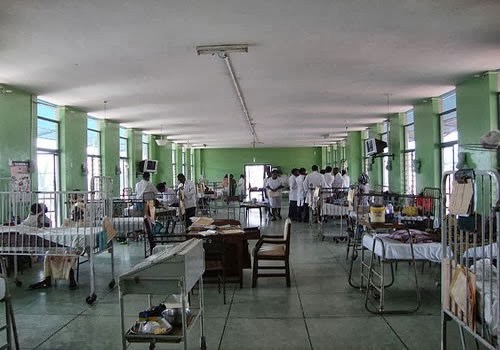The Future of Health and Promise of Primary Health Care In Nigeria

, By Muhammad Pate
I intend to share a perspective on the future of health and the promise of primary health care in Nigeria, while also placing Nigeria’s health situation within the context of important trends that are occurring globally, as well as in our mother continent, Africa.
Also, I will attempt to link health and economic development, share some observations on Nigeria’s demographic dynamics linked to its health status, aspects from the recent history of its health system’s evolution, identify the underlying reasons for the key challenges and present a few ideas on the way forward.
There are several major transitions happening gradually in our world today, and particularly in Africa and Nigeria, which can easily escape notice.
These range from demographic transitions in terms of the population structure and ageing, urbanisation, politics – which until recently was in democratic directions, climatic shifts, the economic movement into the fourth industrial revolution, and technological changes involving the shift from big mechanical machines towards miniaturisation; and transitions in mobile technology, biotechnology, nanotechnology, genomics to proteomics and metabolomics.
All these transitions can be interconnected and have potential implications for individual, public and planetary health. More immediately, they may have implications for the future of health systems and the ongoing epidemiologic transitions.
In May 2012, The Lancet medical journal convened a specific Commission on the future of health in sub-Saharan Africa. The Commission, comprising diverse African experts, academics, policy makers and practitioners, decided to take a medium to longer term perspective on the issues, opportunities and challenges facing African health systems.
We recognised the region’s potential to improve health on its own terms, and largely within its own resources in the long-term. Recognising the substantial inter-country, as well as intra-country, variabilities in health systems and outcomes, the Commission concluded its work with justified evidence for optimism in Africa’s health future.
But that optimism is not guaranteed, it will depend on how national and sub-national leaders exercise their roles to invest appropriately in people-centered systems with solid primary health care foundations.
In this era of the Sustainable Development Goals, and move toward Universal Health Coverage, bold new ideas must be explored and executed, thinking ahead, learning from global experiences but pursuing sometimes uniquely African paths, and delivering results to everyone.
The Commission’s vision and aspiration is that by 2030 Africans should have the same opportunities for long and healthy lives that new technologies, well-functioning health systems, and good governance, offer people living everywhere. It laid out a clear agenda for action.
I was very honoured to join some brilliant minds on health in the African continent and globally to contribute to the Commission’s work, led by Peter Piot and Nelson Sewankanbo. The Commission’s report was officially launched on September 14th in Nairobi, Kenya, but given this gracious invitation by UNIMED, I thought to also bring copies of the report as a way of disseminating the results within Nigeria.
Read more at https://opinion.premiumtimesng.com/2017/10/21/the-future-of-health-and-p...












